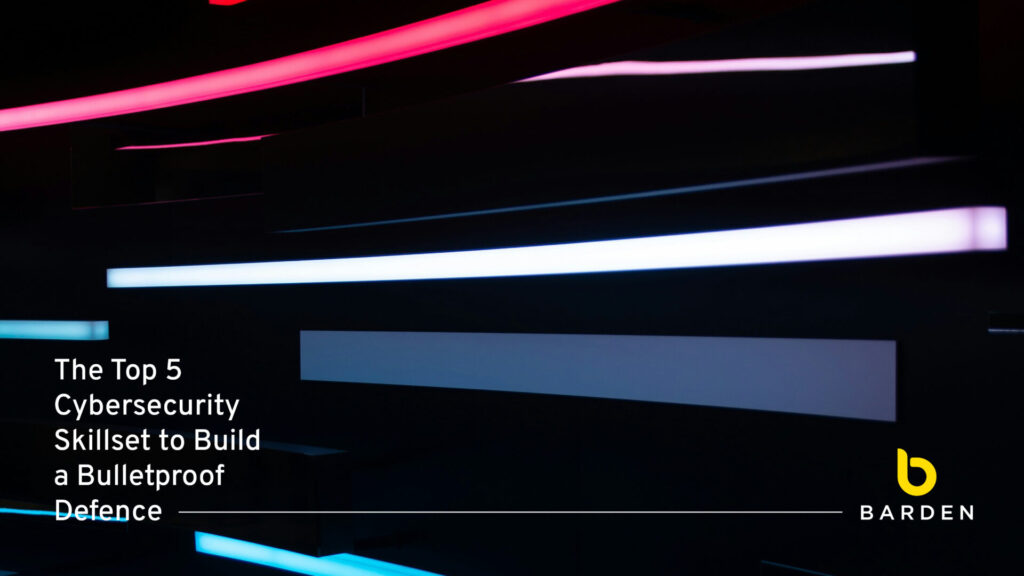The ever-evolving cybersecurity landscape demands skilled and well-equipped professionals. In this blog, we will delve into the top 5 must-haves for cybersecurity professionals, equipping you with the knowledge and tools to excel in this dynamic field.
1. Threat Intelligence:
Threat intelligence is essentially actionable data about cyber threats that helps organisations proactively defend themselves.
Why it’s important:
Uncovers the unknown: Threat intelligence sheds light on hidden threats and potential attack vectors, allowing security teams to prepare for unseen dangers.
Empowers defenders: By revealing attacker motivations, tactics, techniques, and procedures (TTPs), threat intelligence empowers security teams to understand how attackers operate and anticipate their next move. This helps security professionals make informed decisions about resource allocation, prioritise incidents, and strengthen defences.
2. Vulnerability Management
Vulnerability management is the practice of proactively identifying and addressing weaknesses in an organisation’s computer systems, networks, and applications. These weaknesses, called vulnerabilities, are like cracks in digital armour – openings that attackers can exploit to gain access to an organisation’s data or disrupt business operations.
Why it’s important:
Quickly Responds to Threats: Vulnerability management is like having a constant security check-up for systems, identifying weaknesses before attackers can exploit them. This allows security professionals to patch vulnerabilities quickly, minimising the window of opportunity for a cyberattack.
Maintains Compliance Requirements: Many industries have regulations that require organisations to identify and address security vulnerabilities. Vulnerability management helps ensure organisations meet these compliance standards and avoid potential fines or penalties.
3. Incident Response:
Incident response (IR) is the organised approach an organisation takes to detect, respond to, and recover from cyberattacks, security breaches, or any other cybersecurity threats. We can compare it to having a well-rehearsed fire drill for digital assets.
Why it’s important:
- Minimise Damage and Downtime: Swift response is key in cybersecurity incidents. A strong IR plan helps minimise damage to systems and data, as well as reduce downtime caused by the attack.
- Protects Data: A well-defined IR plan safeguards an organisation’s critical data, networks, and services from malicious activities. It also helps to prepare employees to react strategically during an attack.
4. Security Information and Event Management (SIEM):
SIEM technology acts as the central nervous system for an organisation’s security posture. It provides real-time analysis of security alerts and offers a comprehensive view of activity across an organisation’s entire IT infrastructure.
Why it’s important:
- Faster Threat Detection and Response: SIEM ingests and analyses a massive amount of security data from various sources. This allows it to identify potential threats much quicker than traditional methods, enabling a swifter response to contain the damage.
- Improved Security Visibility: SIEM provides a holistic view of an organisation’s security environment. This comprehensive view allows it to identify suspicious activities that might otherwise go unnoticed.
5. Cybersecurity Awareness Training:
Security awareness training educates employees on how to recognise and mitigate cyber risks, fostering a culture of vigilance and resilience.
Why it’s important:
- Reduced Human Error: Many cyberattacks exploit human vulnerabilities. Training empowers employees to identify suspicious emails, avoid phishing attempts, and handle sensitive data securely. This significantly reduces the risk of human error that can lead to costly breaches.
- Stronger Defense Against Social Engineering: Social engineering attacks often target human emotions and trust. Training equips employees with the knowledge and skills to identify these tactics and avoid falling victim to them.
Check out our other blogs in this series:
Cracking the Code of Cybersecurity Certifications >>>>
Understanding the Complete Cybersecurity Cycle >>>>
More about Lorraine…
Lorraine O’Leary is a Senior Associate in the Infrastructure & Security division of Barden’s talent advisory and recruitment firm.
Graduating with First Class Honours in BSc Business Information Systems from UCC, Lorraine’s academic aptitude for technology laid a solid foundation for her career trajectory. In February 2021, she joined the Barden team and has been a driving force behind the growth of the emergent technology practice within Barden, contributing significantly from its inception.
In her role, Lorraine serves as a trusted advisor to technology professionals and clients, providing guidance and unbiased advice throughout their careers. In particular, she works directly with infrastructure and security professionals throughout Ireland. Connect with Lorraine on LinkedIn or via lorraine.oleary@barden.ie


 Jump Back
Jump Back

